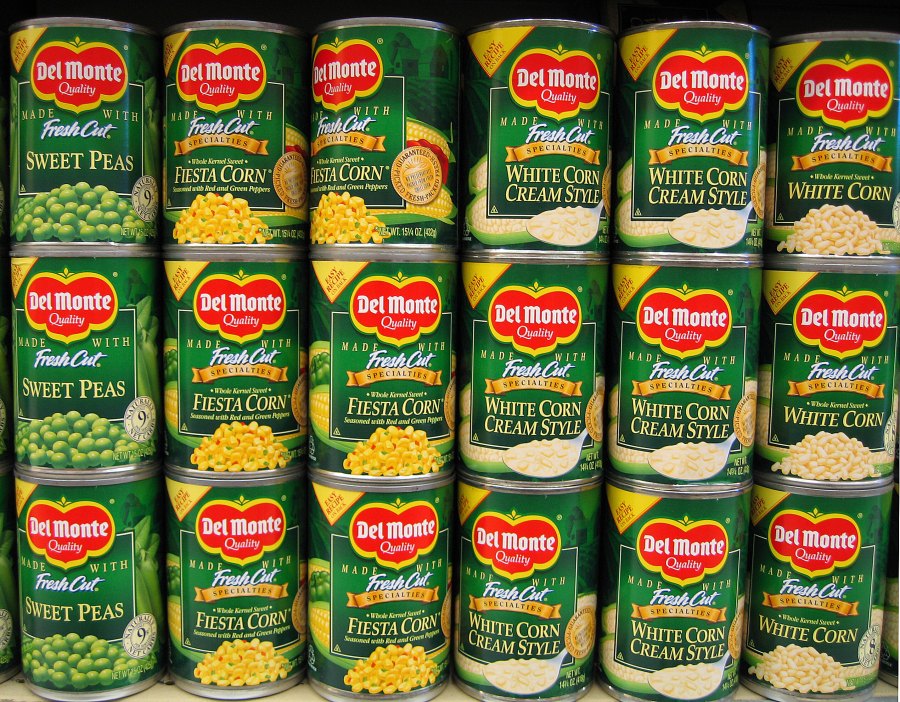
Del Monte Foods, a storied name in the canned fruits and vegetables industry, has filed for bankruptcy protection. This move comes as American consumers increasingly opt for healthier or more affordable alternatives. The 139-year-old company, headquartered in Walnut Creek, California, has secured $912.5 million in debtor-in-possession financing, ensuring its operations continue smoothly during the sale process.
In a statement, CEO Greg Longstreet emphasized the strategic nature of the decision: “After a thorough evaluation of all available options, we determined a court-supervised sale process is the most effective way to accelerate our turnaround and create a stronger and enduring Del Monte Foods.” The company, which also owns the Contadina tomato brand, College Inn and Kitchen Basics broth brands, and the Joyba bubble tea brand, has seen some growth in these areas. However, this has not been enough to counterbalance declining sales of its traditional canned products.
Changing Consumer Preferences
The announcement comes as consumer preferences have shifted markedly away from canned foods, which are often perceived as preservative-laden, in favor of fresher, healthier alternatives. Sarah Foss, global head of legal and restructuring at Debtwire, commented, “Consumer preferences have shifted away from preservative-laden canned food in favor of healthier alternatives.”
Additionally, grocery inflation has driven consumers to seek out cheaper store brands, further impacting Del Monte’s sales. The economic environment has compounded these challenges, with President Donald Trump’s 50% tariff on imported steel, effective since June, increasing costs for canned goods manufacturers like Del Monte.
Financial Struggles and Legal Challenges
Del Monte Foods is owned by Singapore’s Del Monte Pacific and has faced significant financial hurdles in recent years. Last year, the company was embroiled in a lawsuit with a group of lenders who opposed its debt restructuring plan. The lawsuit was settled in May, but the terms included a loan that increased Del Monte’s interest expenses by $4 million annually, further straining its finances.
“The bankruptcy filing is part of a planned sale of the company’s assets,” Del Monte stated late Thursday, signaling a strategic pivot to stabilize its financial standing.
Historical Context and Industry Trends
Del Monte’s challenges are emblematic of broader trends in the food industry, where legacy brands are struggling to adapt to rapidly changing consumer tastes. Historically, companies like Del Monte thrived by offering convenient, shelf-stable products. However, as awareness of health and nutrition has grown, consumers have gravitated towards fresh produce and minimally processed foods.
This development follows a pattern seen in other sectors where traditional brands have had to reinvent themselves or face obsolescence. The rise of private label brands, which offer similar products at lower prices, has also eroded the market share of established names.
Looking Forward: The Future of Del Monte
The move represents a critical juncture for Del Monte Foods as it seeks to navigate its financial difficulties and reposition itself in a competitive market. The company’s focus on expanding its broth and bubble tea offerings could signal a shift towards more contemporary products that align with current consumer preferences.
According to industry analysts, the success of Del Monte’s restructuring will depend on its ability to innovate and adapt to market demands. The company’s commitment to a court-supervised sale process suggests a proactive approach to restructuring, but the path forward remains uncertain.
Meanwhile, stakeholders will be watching closely as Del Monte charts its course through bankruptcy proceedings. The outcome could serve as a bellwether for other traditional food companies facing similar pressures in a rapidly evolving marketplace.
The implications of Del Monte’s bankruptcy filing extend beyond its immediate financial health, potentially influencing industry standards and consumer expectations in the years to come.






